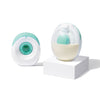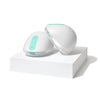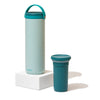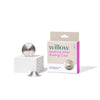Let's face it - when it comes to choosing a baby formula, the options can feel downright overwhelming. With what seems like 17 gazillion different types of formula lining the shelves, it's easy to get lost in a sea of choices.
But fear not!
We're here to help you navigate through the endless options formula and find the right one for your baby. Sure, it might involve a bit of trial and error, but with our guidance, you'll be well on your way to picking the perfect formula for your baby.
Types of Formula
Did you know there are different types of formula that come in different forms?
Yes, seriously!
Formula comes in three forms: powdered, liquid concentrate, and ready-to-use.
-
Powdered formula is the most economical choice and requires mixing with water before feeding.
-
Liquid concentrate formula is a bit more convenient as it only requires dilution with water.
-
Ready-to-use formula, as the name suggests, is pre-mixed and doesn't require any additional preparation. While ready-to-use formula may be the most convenient, it is also the most expensive option.
Now that we've talked about the forms of formula, let's talk types. Now there are a million things we could cover, so here's a quick overview!
Cow milk-based
One of the most common types of formula is cow milk-based formula. It's formulated to mimic breast milk and contains a blend of proteins, carbohydrates, and fats that provide essential nutrition for your baby's growth and development. Many babies tolerate cow milk-based formulas well, but if your baby has a cow milk allergy or sensitivity, you may need to explore other options.
Soy-based
For babies who can't tolerate cow milk-based formulas, soy-based formulas can be a suitable alternative. These formulas are made from soy protein and are lactose-free, making them a good choice for babies with lactose intolerance or cow milk allergies. However, it's important to note that some babies who are allergic to cow milk may also be allergic to soy, so it's always best to consult with your pediatrician before making the switch.
Hydrolyzed
These specialized formulas are specifically created for babies who have digestive issues or allergies. They contain proteins that have undergone a process of breaking them down into smaller fragments, which makes them easier for delicate tummies to digest. Hydrolyzed formulas come in two main types: partially hydrolyzed and extensively hydrolyzed. If your baby has mild digestive discomfort, your healthcare provider may suggest a partially hydrolyzed formula. However, if your baby has more severe allergies, an extensively hydrolyzed formula is often recommended. These formulas can provide the necessary nutrition while being gentle on your baby's sensitive system.
Specialized formulas for medical needs
In some cases, babies may require specialized formulas due to specific medical conditions or dietary restrictions. These formulas are typically prescribed by a healthcare professional and may include hypoallergenic formulas for babies with severe allergies, elemental formulas for babies with malabsorption issues, or formulas fortified with additional nutrients for premature babies.
Picking a Formula
Now that you know the different types and forms of formula available, let's dive into the process of picking the right one for your baby. There are a few different things you’ll want to consider, such as:
Cost
When considering which formula to choose, you’ll want to take cost into account. Different types of formulas come with different price tags, and it's important to find options that fit within your family's budget.
While brand-name formulas may be more expensive, there are often generic or wholesale brands that provide similar nutritional benefits at a lower cost. Don't be afraid to explore these more affordable alternatives while ensuring that they meet the necessary nutritional standards.
Availability
Another crucial factor to consider when choosing a baby formula is its availability. It's important to select a formula that you can easily obtain, especially in case of emergencies or unexpected situations.
Imagine running out of formula in the middle of the night and not being able to find your baby's specific brand at your local store.
That's why it's a good idea to choose a formula that is widely available and stocked in many stores, if possible.
Opting for a formula that is popular and commonly used by other parents can increase the likelihood of finding it easily when you need it the most. So, while it may be tempting to go for a super specific or niche formula, it's worth considering the convenience factor and ensuring that you can always keep an adequate supply on hand.


















